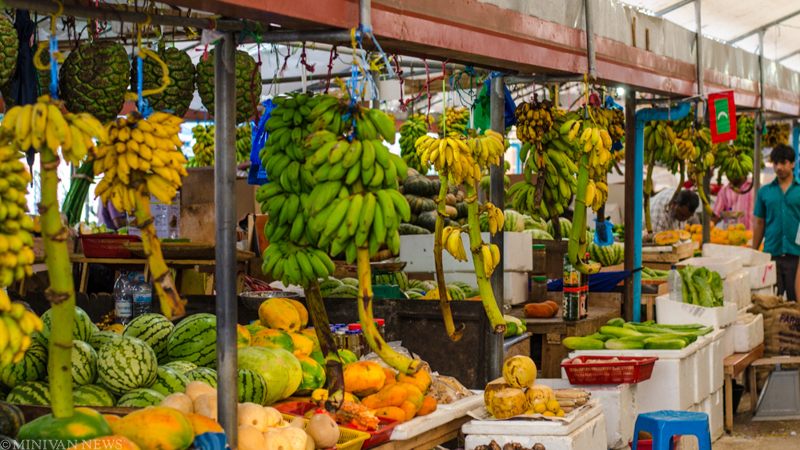The task force appointed by the government to combat a dengue fever outbreak linked to the deaths of seven people has claimed it is beginning to bring the spread of the virus under control, despite initial difficulties in coordinating with local councils.
A spokesperson for the task force, which has been put in charge of coordinating the responses of government ministries, the Maldives National Defense Force (MNDF) and NGOs like the Red Crescent, has said it has overcome initial difficulties such as dealing with local councils in trying to curb virus infection rates.
In a week where authorities have labelled the latest outbreak of dengue fever across the country as an “epidemic“, opposition parties have been critical of both the speed and nature of the government’s response to these concerns, despite welcoming efforts to try and combat the virus.
The criticisms come after newspaper Haveeru reported that a four-year old boy, who had been brought to Male’ for treatment of dengue fever, had become the seventh person in the last week to have died from the virus.
Despite fears of the virus continuing to spread, for those charged with coordinating the country’s dengue control programme, “significant progress” is claimed to have been made over the last few days in collecting data and trying to understand the full scale of the current outbreak and how to contain it.
At present, the taskforce overseeing this national response the to dengue fever has said that it expects the current outbreak to be fully under control within a week. The claims have been backed by official figures supplied by the same coordination body that indicated that 11 suspected cases of dengue were reported today, compared to 16 cases recorded yesterday and 18 cases the day before.
Speaking to Minivan News today, the task force’s media spokesperson said that while dengue outbreaks were nothing new in the Maldives, the number of suspected cases of the virus that traditionally were expected dropped by this time of year had in fact spiked. The spokesperson added that this apparent spike in infections had created a number of coordination difficulties for a new system of local government put in place following the country’s first local council elections in February.
“Compared to last year, during these dates, figures usually go down. However, this month, there has been a spike [in numbers of dengue cases],” he said. “When the local councils took over [collecting data about the virus from the Health Ministry], the whole process was stalled, nothing was moving.”
The spokesperson said that there was insufficient research to identify the exact factors driving a suspected spike in infection numbers of late. However, he claimed there had been “many internal and administrative problems” that when combined with the country’s wet season – resulting from the south west monsoon that runs from May to November – may have served to exacerbate the impacts of the outbreak.
According to the task force spokesperson, the decision to hand over the responsibility for detailing information on the spread of dengue from the Health Ministry to island councils had initially raised notable problems for the government; though these issues were now being resolved.
“There were some problems in getting councillors initially to work on weekends, but I think everyone has understood the severity of the outbreak,” he added.
While no “drastic” changes had been made in the methods used by authorities themselves to combat dengue fever infections, the taskforce representative said that the key focus for efforts both now and during any future “epidemics” would be in trying to ensure that the mechanisms for coordination were working efficiently.
“In the future, this task force will have helped with this, because we are getting important data and contacts,” the representative said.
With the task force currently budgeted to run for seven days, the body’s media spokesperson said that no decision had yet been made on whether similar initiatives would be used during future outbreaks, yet he was confident that important lessons could be learnt from the current system.
“I think the task force will help to administer preventative measures during outbreaks in the future. Building a fixed system out of this existing network will be very helpful,” he said. “There has been a change in how government works, so people have had difficulties in adjusting to this and awareness of requirements has been low. Councils also have to realise their responsibilities as well.”
The task force spokesperson claimed that preventative measures for dengue also needed to focus on members of the public in areas like education at schools, as well as improving hygiene in houses and carrying out inspections at construction sites to limit mosquito breeding grounds.
“I think the basic thing is to get this system in place, like in schools, things like education on personal hygiene and dealing with councils,” he said. “If these don’t work, then every time we can’t always go to the MNDF for assistance.”
“Bungled” response
Despite the task force representative’s claims, Ibrahim ‘Mavota’ Shareef, Spokesperson for the opposition Dhivehi Rayyithunge Party (DRP), saidthat he believed that the government had “bungled” their response to trying to control dengue fever. Shareef added that although the DRP welcomed and would cooperate with the government in efforts to try and limit the spread of the virus, he said that authorities had acted too slowly in trying to deal with the outbreak.
“From what we have seen the government is just not doing enough. We don’t believe they have been willfully negligent, but there has been negligence in their approach [to dengue outbreak],” he claimed. “They have not responded fast enough, which could be inexperience on their part. But I think this will be a wake-up call for them to change policy in dealing with these type of situations.”
Likes (0)Dislikes
(0)Dislikes (0)
(0)
 (0)Dislikes
(0)Dislikes (0)
(0)